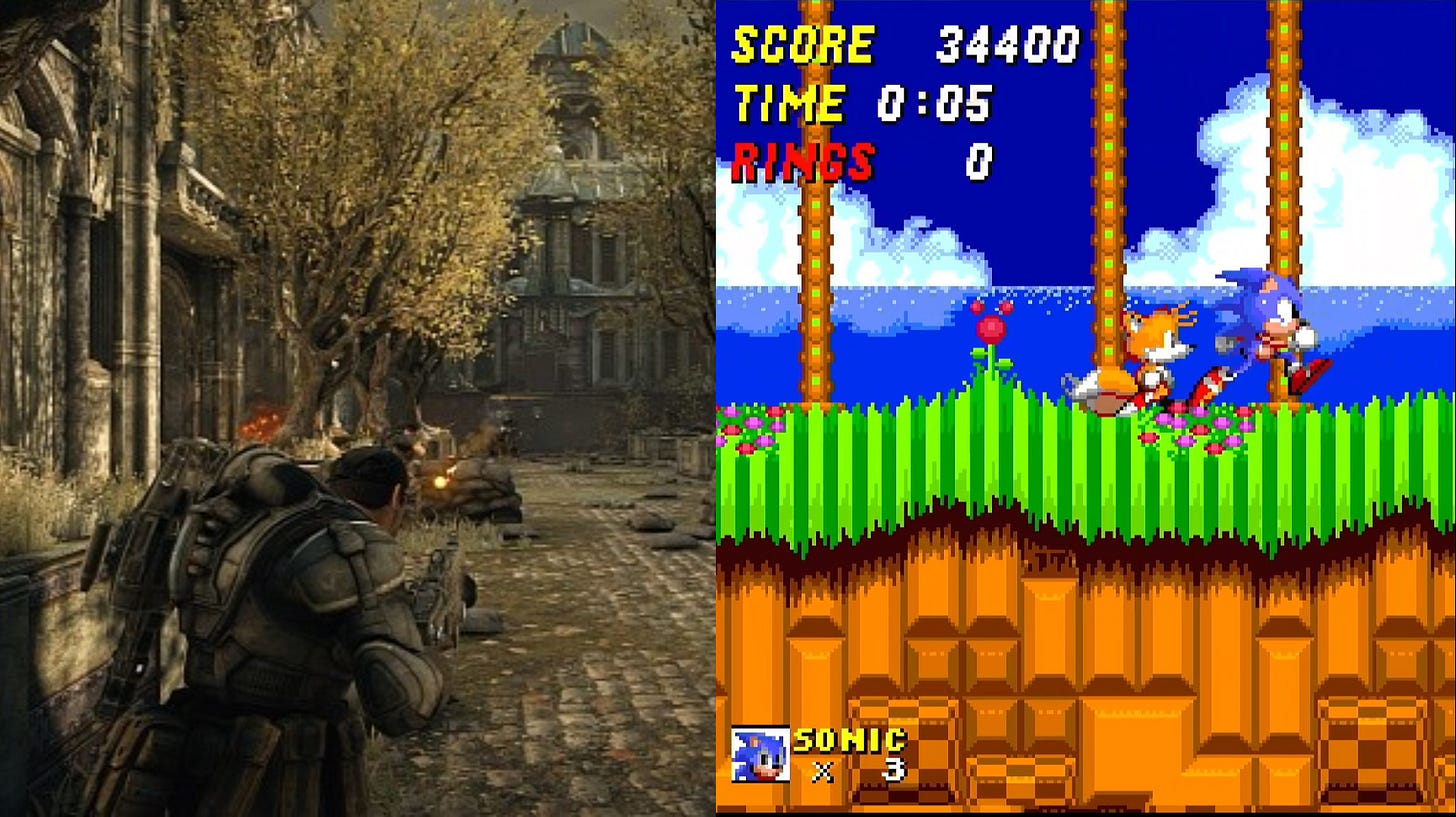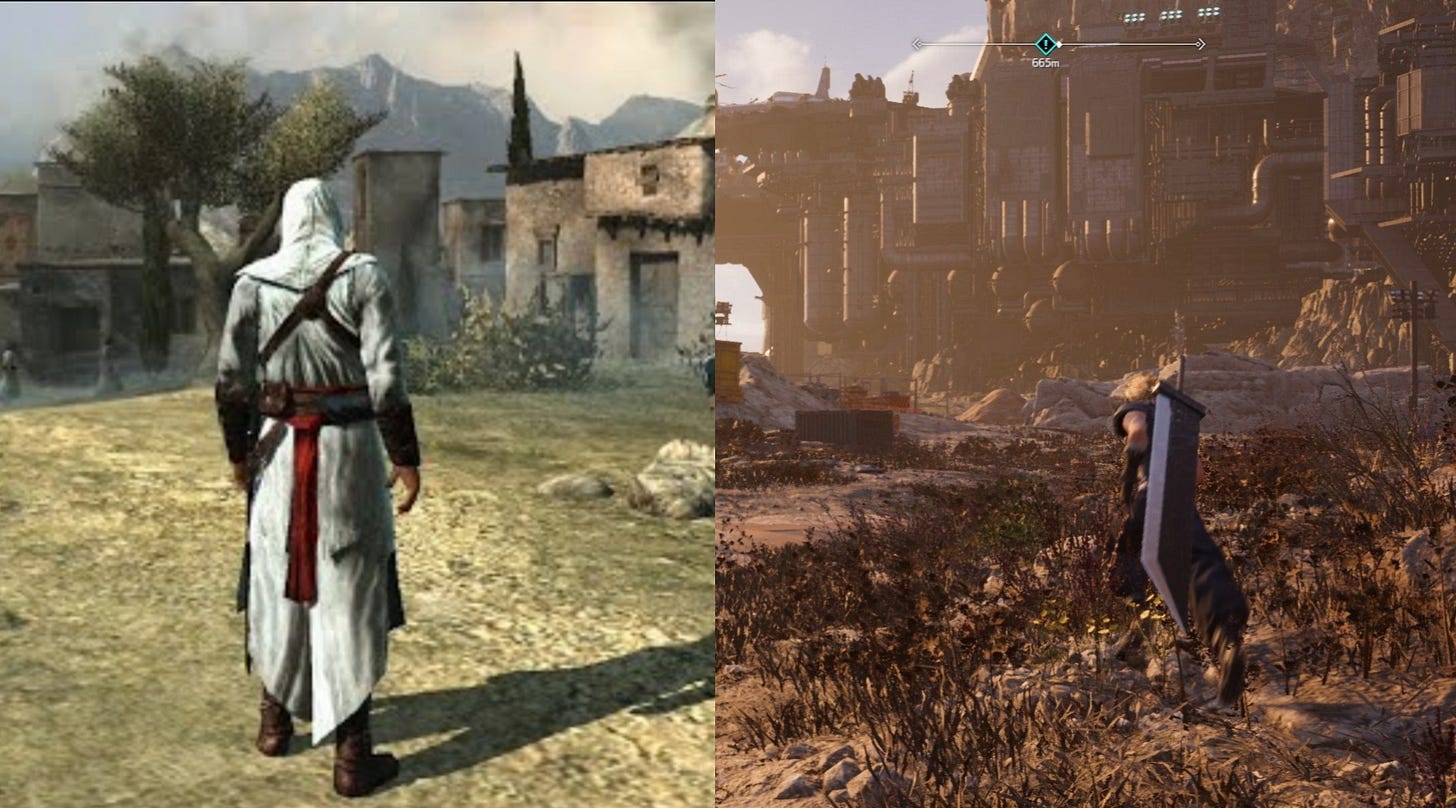Are the Xbox 360 and PS3 Retro? Debating the Grey Area of Gaming History
Why Defining Retro Games Is More Complicated Than It Seems
I consider myself a nostalgia gamer. For me, the sense of nostalgia is a powerful motivator—it’s what drives me to pick up an old favourite and dive back into worlds that shaped my love for gaming. But what does that mean, exactly? I don’t just enjoy playing older games; I also appreciate them for what they were at the time, without comparing them to the advancements we have today. I’d even call myself a retro gamer, given how often I find myself revisiting titles from the SNES and Mega Drive eras. But that got me thinking: what exactly defines retro gaming?
Defining Retro Gaming: A Quest for Clarity
I started where any good internet detective would—Google. And where does Google lead? Wikipedia and Reddit, of course. Wikipedia suggests retro gaming is defined by the transition from 2D to full 3D graphics, and the shift from arcade cabinets to home consoles. That’s a bit too broad for my liking. So, I turned to Reddit, the internet’s voice, to see what the community thinks. The opinions there were more varied: some say a game is retro if it’s over 15 years old, has pre-HDMI outputs, or existed before online services were common. One thing everyone agreed on is that the console should no longer be available new. But does that definition capture the essence of what makes something ‘retro’?
Time vs. Technology: A Shifting Line
The challenge with defining retro gaming lies in how rapidly technology has advanced. The Xbox 360 launched in late 2005, and the PS3 in 2006. These consoles marked a significant leap in graphics and processing power. Think about games like Gears of War, Halo 3, and Resistance. The visual and gameplay improvements were obvious compared to the original Xbox and PS2. To make a fair comparison, let’s say 2007 was when these consoles really hit their stride. Now, go back 15 years before that, to 1992. We’re in the SNES/Mega Drive era with titles like Sonic 2, Streets of Rage 2, Super Mario Kart, Street Fighter II, and A Link to the Past. The differences between Gears of War and these games are stark.
But what about the games released in 2007, such as Assassin’s Creed, Call of Duty 4: Modern Warfare, and Oblivion? These were groundbreaking at the time, but they’re now 17 years old. Yes, I can tell they aren’t current-gen, but the difference doesn’t seem as dramatic as between Gears of War and Sonic 2. This raises a question: does time alone dictate what’s considered retro, or is it more about the evolution in graphics and gameplay?
What About Ease of Play?
Another factor to consider is how accessible these older games are today. Microsoft claims full backwards compatibility with the Series X/One, but not all games are supported. The PS4 and PS5 can’t play earlier generation games natively, and the Switch has moved away from discs entirely. Yet, modern consoles have built-in emulators—like Nintendo’s Switch Online—making it easier to play 90s-era games than GameCube or Wii titles. Meanwhile, Game Pass and PS Plus offer a library of older games that are easily playable. But playing these games on their original hardware is a different story. The Xbox 360, PS3, and Wii can still be connected to modern TVs with the right adapters, but anything older requires AV, component, or even SCART cables, making it more challenging. Does the difficulty of playing these games on their native consoles affect what we consider retro?
The Emulation Debate
This brings me to emulation. I’m a strong advocate for emulation, especially when it comes to games and consoles that are no longer supported or generating revenue for their creators. Emulation makes it possible to play games that would otherwise be inaccessible, and it’s easier to get SNES emulators running smoothly than those for the PS3. In fact, for many gamers, it’s simpler to play a SNES game today than it is to play a title from just two console generations ago. Should how easy a game is to play influence whether it’s considered retro?
My Take on Retro Gaming
So, where do I stand?
For me, the Xbox 360/PS3/Wii generation falls into the retro category. It’s not just about time passing; it’s about recognising that these consoles marked a significant moment in gaming history, and now, they’re more than 15 years old. I won’t limit retro gaming to the 90s alone because, let’s face it, the PS2/Xbox era is undeniably retro at this point. The Xbox 360 era is a grey area, I’ll admit. Some of those games still hold up visually and technically, but you can usually tell they’re from a different time.
And if you think the PS2 doesn’t count as retro, here’s a fun fact: Vice City, released in 2002, was set in the ‘retro’ 80s—specifically, 1986. That was 16 years before the game’s release. If a game were released today and set 16 years ago, it would be set in 2008—years after the 360 and PS3 hit the market! Does that make you feel old?
A Matter of Perspective
I also think our definition of retro gaming is influenced by what we grew up with. People ten years older than me (I was born in ‘91) might hesitate to call the Xbox 360 retro because they’ve seen so much evolution in gaming. For someone whose first real console was a PlayStation, and who had an Xbox 360 in school, it’s easier to see these consoles as retro.
Where do you draw the line between modern and retro gaming? Share your thoughts in the comments, or join the conversation on social media! Let’s see if we can pin down what makes a game truly ‘retro’.




Completely agree with you saying the Xbox 360/PS3/Wii generation of consoles are now retro. As much as we hate to admit it, these consoles are close to twenty years old.
It is crazy, though, how little has changed in terms of game design in the last twenty years vs., say, 1985-2005. Mostly just streamlining and refining, making games easier to play.
Thanks for the post!